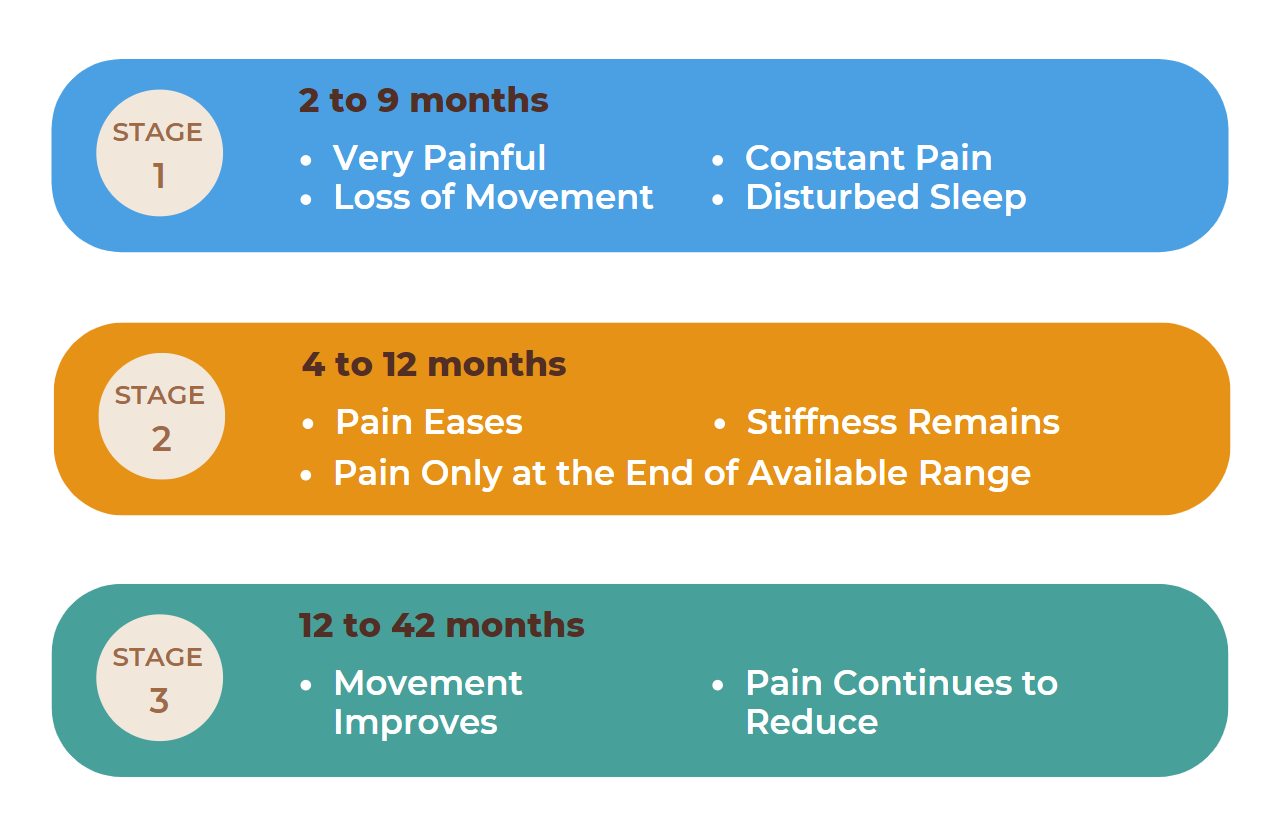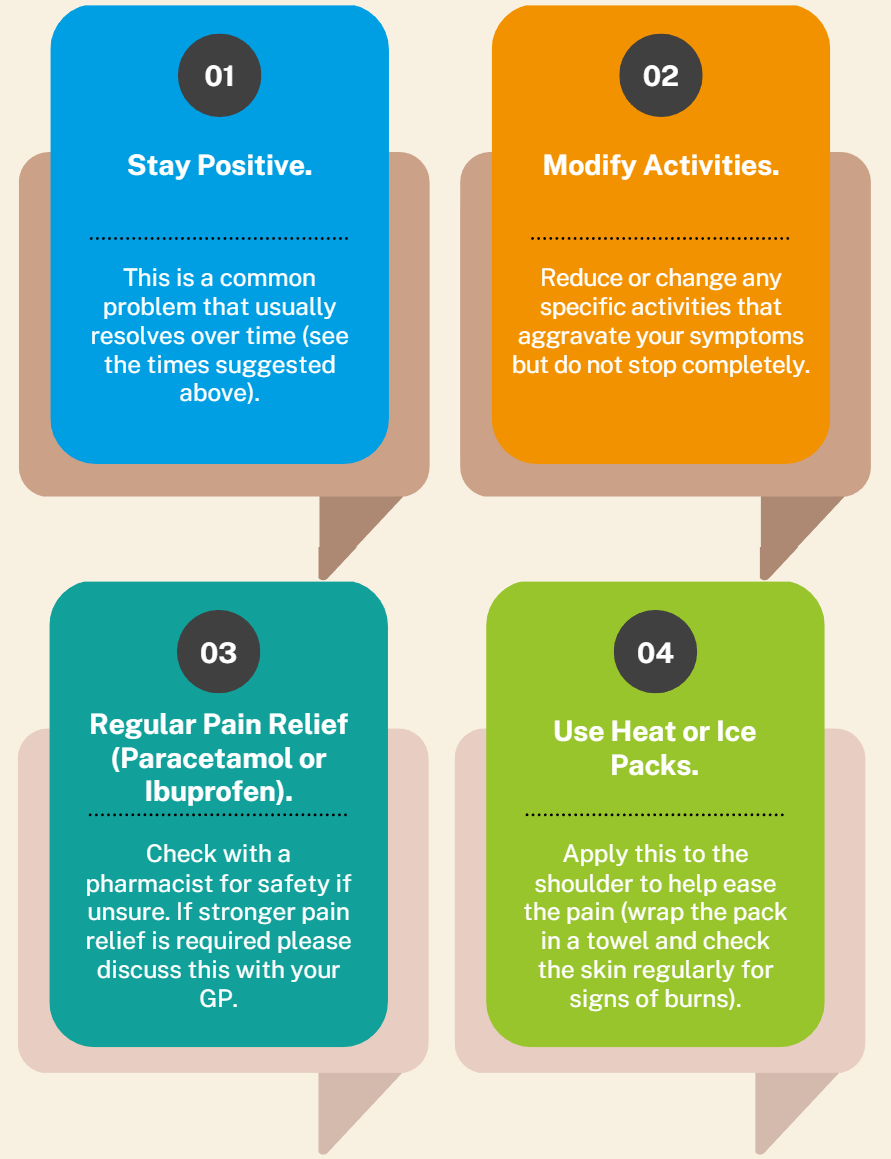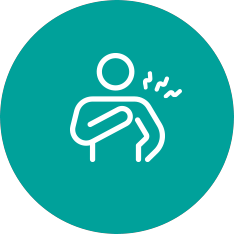Frozen Shoulder
What is a Frozen Shoulder?
A frozen shoulder is a condition which affects the shoulder joint capsule. The capsule is a membrane which surrounds the shoulder joint and allows your arm to move freely.
With a frozen shoulder, the capsule becomes thickened, tight, and irritated. This can result in stiffness and pain making it difficult to perform normal tasks like brushing your hair or dressing.
It can also disturb your sleep and impact on other daily tasks.
Because it affects the joint capsule, it is also known by other names such as “adhesive capsulitis”, or “shoulder capsulitis”.
How long does it last?

What causes a Frozen Shoulder?
The exact cause of a frozen shoulder is not always known and is still not fully understood, however there are factors that increase your risk of developing it:
- Diabetes
- Thyroid gland problems
- Previous stroke
- Previous heart attack
- Dupuytrens contracture
- Prolonged immobilisation of the shoulder after surgery
It is more common in women than men and between the ages of 40-60.
For more information to help support your general health and well-being, please click here to access our "Healthy You" page. This includes information on exercise, mental health, smoking and weight management.
What can I do to help myself?

What else can I do?
You can try starting with these common exercises for frozen shoulder. They are split up into three difficulties. Start with the easiest and gradually progress as you feel able to.
Frozen shoulder exercises - Easy
Frozen shoulder exercises - Moderate
Frozen shoulder exercises - Advanced
Do I need an x-ray or scan?
In most cases, no. A good history and physical examination of your shoulder alone provides enough information to diagnose your problem. Scans and x-rays are not always useful for diagnosing shoulder pain. While a scan or x-ray may provide information it rarely alters the treatment plan.
Imaging findings are very poorly linked with pain and often people with no pain have very similar findings on their scans/x-rays to those that do. X-rays and scans can help for a small number of people in certain situations and will be recommended by a healthcare professional if required.
What about a steroid injection?
A steroid injection may be considered to help control the pain in some circumstances. The risks and benefits would be discussed with your Physiotherapist or GP and is not always an appropriate option for all patients.
Symptoms to check
Click the plus sign to see a list of problems that could be a sign you may need to be checked urgently
Get advice from 111 now if:
- the pain is sudden or very bad
- you cannot move your arm
- your arm or shoulder has changed shape or is badly swollen
- you have pins and needles that do not go away
- your arm or shoulder is hot or cold to touch
- the pain is severe and started after an injury or accident, like a fall
- hurts when you exercise but goes away when your rest
- you are experiencing chest pain/tightness with your shoulder pain
111 will tell you what to do. They can tell you the right place to get help if you need to see someone.
Go to 111.nhs.uk or call 111.
Immediate medical advice is available by contacting NHS 111


 Shoulder
Shoulder